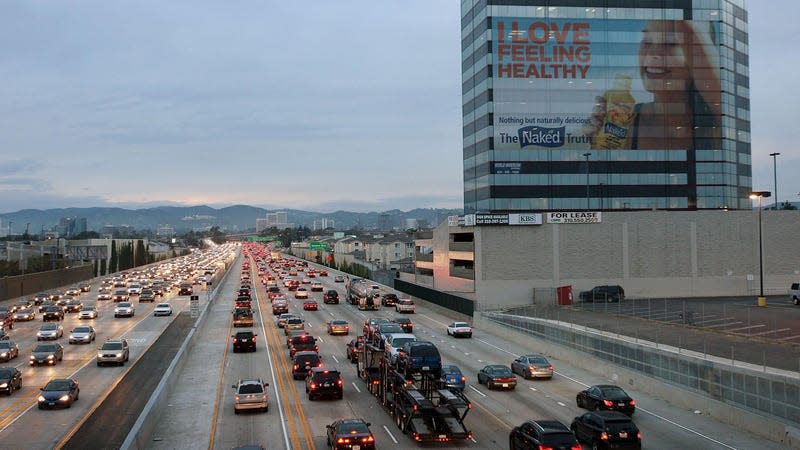Why Do We Keep Widening Highways When We Know It Doesn't Improve Traffic?

The concept of induced demand is far from new at this point. It’s been around since at least the 1960s, and we’ve reported on it for years. And despite Elon Musk infamously disagreeing, it’s a real thing that’s backed up by a ton of research. When you widen a road and add lanes, congestion and traffic speeds may initially improve, but it doesn’t last. In the long term, all you get is more cars and more traffic. And yet, despite knowing that widening roads generally doesn’t work, states have continued to treat it as the only option.
Recently, The New York Times published an article that explores how different states approach reducing congestion. It’s a big deal because, with the passage of last year’s infrastructure bill, they’re about to have access to $350 billion in federal funds. And while Democrats and Republicans are generally divided on pretty much every national-level issue, at the state level, they’re pretty united on widening roads instead of investing in public transportation and more walkable infrastructure.
Read more
As the article points out, that’s partly because a lot of states prefer to leave those things for city governments to fund and build. Those projects also tend to get less funding. Sometimes that’s by choice, but it can also be a legal requirement. For example, the Texas constitution requires the majority of the state’s transportation funding be spent on its highways. Over the next year, highway projects will get more than 85 percent of the state’s transportation funding.
That includes expanding I-45, which will displace an estimated 300 businesses and 1,000 residents, many of whom are racial minorities. Officials in Houston are working to get funding to improve public transportation in the city through bonds and federal grants, but the state’s priority is still highways. It may be backward thinking, but good luck getting Texans to vote to change the state constitution to allow the Texas Department of Transportation to spend funding the way it sees fit.
Interestingly, California appears to be one of the few states that are rethinking its obsession with expanding highways. After spending $60 million designing and planning an expansion of Interstate 710, California canceled those plans last year. The project had been paused since 2020 when the Environmental Protection Agency ruled that it would violate the Clean Air Act.
“Caltrans in the past was very focused on dealing with congestion primarily. We have since pivoted, completely done a 180,” said Tony Tavares, the director of Caltrans, California’s Department of Transportation.
There’s a lot more to the article than we can include here, so we highly recommend you head over to The New York Times and give it a read.
More from Jalopnik
Sign up for Jalopnik's Newsletter. For the latest news, Facebook, Twitter and Instagram.

 Yahoo Autos
Yahoo Autos 